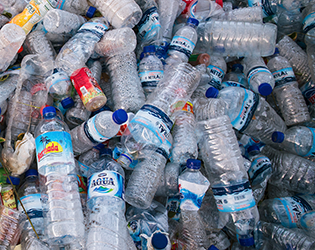
NRCan sets $150k plastics challenge to develop new bio-based foam insulation
Mike Edwards
Features competition Natural Resources Canada NRCan
The vast majority of foam insulation (rigid foam board and spray foam) are largely produced using petrochemical feedstocks, according to Natural Resources Canada (NRCan). As such, they are produced from non renewable sources, emit significant greenhouse gas (GHGs) emissions during manufacturing and are difficult to recycle at end of life.
A few products on the market incorporate small quantities of bio-based material, up to 2% for “soy” spray foam and up to 25% lignin in IsoLignin polyurethane rigid foam.
By August 27, 2019, 14:00 Eastern Daylight Time, NRCan is seeking solutions that result in foam insulation products (either spray foam or rigid foam board) that: are predominantly derived from Canadian forest residue; have similar insulation values (within 20%) as currently available petroleum-based versions; would have similar cost (within 20%) as currently available petroleum-based versions; are less flammable than petroleum-based versions; are fully recyclable at end of life and, last but not least, would generate less (GHG) emissions during manufacturing.
A winning small business may receive up to $150,000 to refine their research and development and, if accepted into Phase 2, receive up to $1 million to develop a working prototype.
Essential (mandatory) outcomes
Proposed solutions must:
- clearly indicate whether they will result in: A) bio-based spray foam insulation and/or B) bio-based rigid foam board.
- be predominantly bio-based (as close to 100% but not less than 60% by weight or volume) and derived from Canadian domestic forest residue
- have similar insulation values (for example closed cell spray foam R-value of 6.5 per inch) as petroleum-based versions (within 20%)
- have similar cost (within 20%) as currently available petroleum-based versions
- be non-flammable or considerably less flammable (at least twice as slow to ignite) than petroleum-based versions
For bio-based spray foam insulation: proposed solutions must have the ability to be sprayed in place, similarly to currently available products.
For bio-based rigid foam board: proposed solutions must have the ability to be extruded or shaped into rigid foam boards.
Print this page